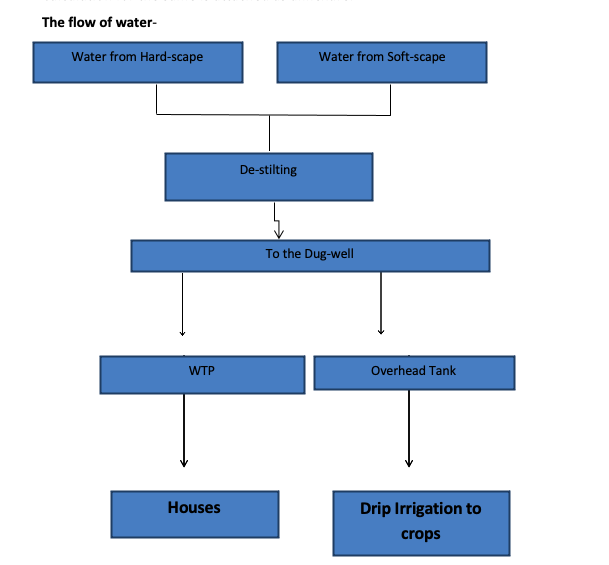Net Zero Residential Project Report
Project Details:
FHD Residential Villa Project, Hyderabad, Telangana, India
Our Client wanted to develop a Residential Net Zero project in Hyderabad, the capital of Telangana state. It lies 506 m above sea level. It is extremely hot and humid weather with little rainfall. This project consists of 120 No’s of Villa’s along with 4 No’s of clubhouse spread over 70 acres. Total project is divided into 6 different cluster’s (Cluster A,B,C,D,E,F).Each Cluster consist of 20 No’s of Villa’s & each Villa consists of Ground, First & Terrace Floor.
We developed the following strategy for both plumbing and Electrical design to develop the most energy-efficient design. The Architect has tried to reduce the ambient temperature by having a lot of green covers and developing the water bodies including ensuring the proper orientation to reduce the direct sunlight impact.
Renewable Energy (Solar Power System)
Alternate Energy production through solar power is considered for the project. The solar system for each cluster will be designed to meet the maximum demand load, to achieve net-zero energy. Solar power is considered for generating Electricity through Photovoltaic Modules.
Solar power will be utilized as the primary source of power to the villas, utility panels and Emergency lighting power supply. On average, the project will require 360 kW per zone of solar power of net-zero energy. This will require approximately 3600Sq.m of surface area for the installation of a PV panel, which shall face south-east without shade. Provisions for net metering distribution is considered with solar power in the project. The design will be towards achieving Net Zero Energy. An on-grid photovoltaic system will be considered without batteries.
Water Strategy Report
This document provides an overview of the Water Strategy method proposed for the Residential Villa’s at Hyderabad. The aim is to deliver an efficient solution for the proposed Residential Villa to suit the modern environment. And also to design a water-secure living community by storing Rainwater & reusing the same.
We had collected the everyday rainfall data from IMD(Indian Meteorological Department )for the last 15 years say from 2004 to 2019. And we had gone through each year and noticed that 2009 is the year we got comparative less rainfall for Hyderabad. Then we tabulated rainfall for each day and calculate the minimum storage to provide so that we can become a water-secure community. 8469 Cum of water storage is recommended based on 2009 years data so that a total of 354 days the community can be water secure. The calculation for the same is attached as an annexure.

